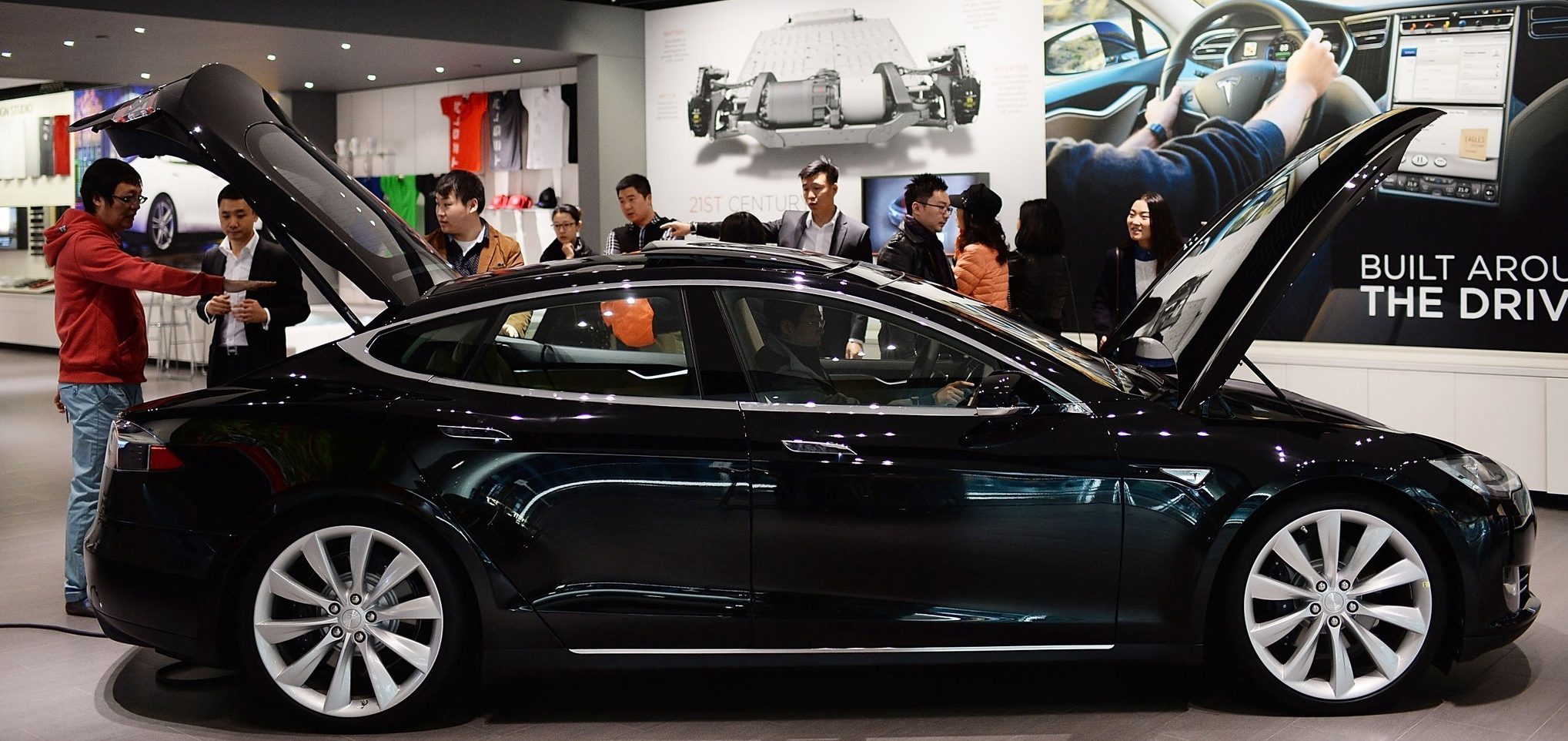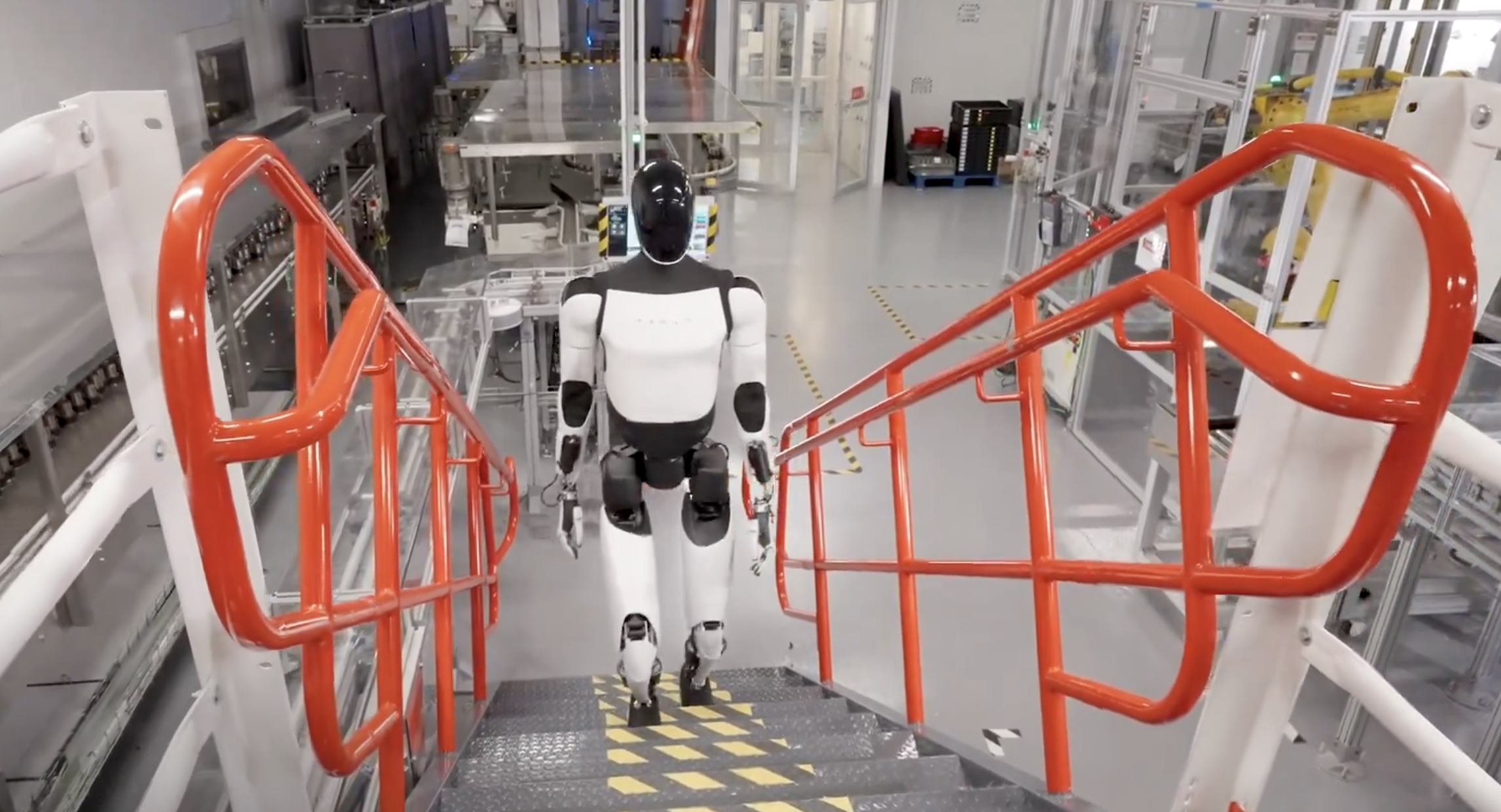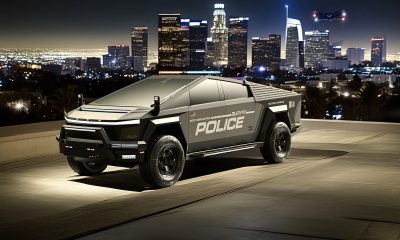

Investor's Corner
Tesla shares (TSLA) recover despite China’s new import tariffs
After showing recovery on Tuesday, Tesla shares (NASDAQ:TSLA) tumbled during pre-market trading on Wednesday amid China’s imposition of new tariffs over US-made products, including electric vehicles like Tesla. Before the opening bell on Tuesday, $TSLA shares were trading down 5.38% at $253.13. The company’s stocks began rebounding later during the day, however, bouncing back from its pre-market dive, up 1.55% and trading at $271.82 per share as of writing.
China’s announcement of its tariffs on US goods comes on the heels of the Trump’s administration’s plans to impose duties on $50 billion worth of Chinese products, including industrial, transport, and medical materials. According to a Reuters report, China Foreign Ministry spokesman Geng Shuang claimed that China had been open to resolving the trade dispute through negotiations, but the US had not been responsive so far.
“The best opportunities for resolving the issues through dialogue and negotiations have been repeatedly missed by the U.S. side,” Shuang said.
It only took China 11 hours to respond to Washington’s tariffs in kind, releasing a list of duties on key American imports. Among these are US-made products such as Tesla’s electric cars, Ford’s vehicles from its Lincoln brand, General Dynamics Corp’s Gulfstream jets, and Brown-Forman Corp’s Jack Daniels’ whiskey.
While the two countries’ tariffs on crucial imports appear alarming, Julian Evans-Pritchard, senior China economist at Capital Economics, said that it would not be surprising if negotiations between America and China would happen soon. According to the economist, it is worth noting that only announcements of the tariffs have been made so far. Neither country has called for enforcement of the duties yet.
“The assumption was China would not respond too aggressively and avoid escalating tensions. China’s response is a surprise for some people. It’s more of a game of brinkmanship, making it clear what the cost would be, in the hopes that both sides can come to agreement and none of these tariffs will come into force,” Evans-Pritchard said.
China’s tariffs, if ever they do get enforced, would likely affect Tesla’s operations in the country. Tesla, after all, is currently in intense competition with local electric car makers in China. As we noted in a previous report, Elon Musk brought up the issue of import taxes that American cars face on the country. Tesla is also engaged in negotiation with officials from Shanghai for the construction of a facility speculated to be the Model Y’s future factory.
J.P. Morgan analyst Ryan Brinkman reiterated his Underweight rating on Tesla’s stocks, citing the ongoing production difficulties that the company is facing with the Model 3. Brinkman also lowered his estimates and stock price target to $185 from $190. RBC Capital analyst Joseph Spak kept his Neutral rating on $TSLA, though he dropped his stock price target from $380 to $305, according to a MarketWatch report.
While Tesla’s shares took a dive during pre-market trading, IHS Markit Managing Director for Asia Pacific James Chao noted in a statement to Bloomberg that Tesla’s woes are relatively minor. Chao further stated the current challenges that Tesla’s shares are facing are manageable, especially since Elon Musk seems to work best when he is driven into a corner.
“(Elon Musk) is really at the edge here. I think this is the environment that works best in, under a lot of pressure. With the tweet on April Fools, you can see that he thrives in the moment. I think that you can see that he is performing, to a certain extent, 2,020 vehicles in the last week of April, was far beyond what analysts, in general, were looking for.
“The overall story just for Tesla is still intact, which is, while large automakers produce vehicles in every single segment of the market, including segments of the market where they can’t make money; Tesla focuses on one segment — this electric vehicle market — which is highly valued. And I think that story still continues despite short-term cycles.”
As we noted in a previous report, Tesla’s first quarter production and delivery report listed a 40% increase in production from Q4 2017. Tesla was also able to manufacture 2,020 Model 3 during the last week of March. Delivery figures were also strong, with the company delivering 29,980 vehicles in total during the first three months of the year. Among this number, 8.180 were Model 3.
Investor's Corner
Tesla could save $2.5B by replacing 10% of staff with Optimus: Morgan Stanley
Jonas assigned each robot a net present value (NPV) of $200,000.

Tesla’s (NASDAQ:TSLA) near-term outlook may be clouded by political controversies and regulatory headwinds, but Morgan Stanley analyst Adam Jonas sees a glimmer of opportunity for the electric vehicle maker.
In a new note, the Morgan Stanley analyst estimated that Tesla could save $2.5 billion by replacing just 10% of its workforce with its Optimus robots, assigning each robot a net present value (NPV) of $200,000.
Morgan Stanley highlights Optimus’ savings potential
Jonas highlighted the potential savings on Tesla’s workforce of 125,665 employees in his note, suggesting that the utilization of Optimus robots could significantly reduce labor costs. The analyst’s note arrived shortly after Tesla reported Q2 2025 deliveries of 384,122 vehicles, which came close to Morgan Stanley’s estimate and slightly under the consensus of 385,086.
“Tesla has 125,665 employees worldwide (year-end 2024). On our calculations, a 10% substitution to humanoid at approximately ($200k NPV/humanoid) could be worth approximately $2.5bn,” Jonas wrote, as noted by Street Insider.
Jonas also issued some caution on Tesla Energy, whose battery storage deployments were flat year over year at 9.6 GWh. Morgan Stanley had expected Tesla Energy to post battery storage deployments of 14 GWh in the second quarter.
Musk’s political ambitions
The backdrop to Jonas’ note included Elon Musk’s involvement in U.S. politics. The Tesla CEO recently floated the idea of launching a new political party, following a poll on X that showed support for the idea. Though a widely circulated FEC filing was labeled false by Musk, the CEO does seem intent on establishing a third political party in the United States.
Jonas cautioned that Musk’s political efforts could divert attention and resources from Tesla’s core operations, adding near-term pressure on TSLA stock. “We believe investors should be prepared for further devotion of resources (financial, time/attention) in the direction of Mr. Musk’s political priorities which may add further near-term pressure to TSLA shares,” Jonas stated.
Investor's Corner
Two Tesla bulls share differing insights on Elon Musk, the Board, and politics
Two noted Tesla bulls have shared differing views on the recent activities of CEO Elon Musk and the company’s leadership.

Two noted Tesla (NASDAQ:TSLA) bulls have shared differing views on the recent activities of CEO Elon Musk and the company’s leadership.
While Wedbush analyst Dan Ives called on Tesla’s board to take concrete steps to ensure Musk remains focused on the EV maker, longtime Tesla supporter Cathie Wood of Ark Invest reaffirmed her confidence in the CEO and the company’s leadership.
Ives warns of distraction risk amid crucial growth phase
In a recent note, Ives stated that Tesla is at a critical point in its history, as the company is transitioning from an EV maker towards an entity that is more focused on autonomous driving and robotics. He then noted that the Board of Directors should “act now” and establish formal boundaries around Musk’s political activities, which could be a headwind on TSLA stock.
Ives laid out a three-point plan that he believes could ensure that the electric vehicle maker is led with proper leadership until the end of the decade. First off, the analyst noted that a new “incentive-driven pay package for Musk as CEO that increases his ownership of Tesla up to ~25% voting power” is necessary. He also stated that the Board should establish clear guidelines for how much time Musk must devote to Tesla operations in order to receive his compensation, and a dedicated oversight committee must be formed to monitor the CEO’s political activities.
Ives, however, highlighted that Tesla should move forward with Musk at its helm. “We urge the Board to act now and move the Tesla story forward with Musk as CEO,” he wrote, reiterating its Outperform rating on Tesla stock and $500 per share price target.
Tesla CEO Elon Musk has responded to Ives’ suggestions with a brief comment on X. “Shut up, Dan,” Musk wrote.
Cathie Wood reiterates trust in Musk and Tesla board
Meanwhile, Ark Investment Management founder Cathie Wood expressed little concern over Musk’s latest controversies. In an interview with Bloomberg Television, Wood said, “We do trust the board and the board’s instincts here and we stay out of politics.” She also noted that Ark has navigated Musk-related headlines since it first invested in Tesla.
Wood also pointed to Musk’s recent move to oversee Tesla’s sales operations in the U.S. and Europe as evidence of his renewed focus in the electric vehicle maker. “When he puts his mind on something, he usually gets the job done,” she said. “So I think he’s much less distracted now than he was, let’s say, in the White House 24/7,” she said.
TSLA stock is down roughly 25% year-to-date but has gained about 19% over the past 12 months, as noted in a StocksTwits report.
Investor's Corner
Cantor Fitzgerald maintains Tesla (TSLA) ‘Overweight’ rating amid Q2 2025 deliveries
Cantor Fitzgerald is holding firm on its bullish stance for the electric vehicle maker.

Cantor Fitzgerald is holding firm on its bullish stance for Tesla (NASDAQ: TSLA), reiterating its “Overweight” rating and $355 price target amidst the company’s release of its Q2 2025 vehicle delivery and production report.
Tesla delivered 384,122 vehicles in Q2 2025, falling below last year’s Q2 figure of 443,956 units. Despite softer demand in some countries in Europe and ongoing controversies surrounding CEO Elon Musk, the firm maintained its view that Tesla is a long-term growth story in the EV sector.
Tesla’s Q2 results
Among the 384,122 vehicles that Tesla delivered in the second quarter, 373,728 were Model 3 and Model Y. The remaining 10,394 units were attributed to the Model S, Model X, and Cybertruck. Production was largely flat year-over-year at 410,244 units.
In the energy division, Tesla deployed 9.6 GWh of energy storage in Q2, which was above last year’s 9.4 GWh. Overall, Tesla continues to hold a strong position with $95.7 billion in trailing twelve-month revenue and a 17.7% gross margin, as noted in a report from Investing.com.
Tesla’s stock is still volatile
Tesla’s market cap fell to $941 billion on Monday amid volatility that was likely caused in no small part by CEO Elon Musk’s political posts on X over the weekend. Musk has announced that he is forming the America Party to serve as a third option for voters in the United States, a decision that has earned the ire of U.S. President Donald Trump.
Despite Musk’s controversial nature, some analysts remain bullish on TSLA stock. Apart from Cantor Fitzgerald, Canaccord Genuity also reiterated its “Buy” rating on Tesla shares, with the firm highlighting the company’s positive Q2 vehicle deliveries, which exceeded its expectations by 24,000 units. Cannacord also noted that Tesla remains strong in several markets despite its year-over-year decline in deliveries.
-

 Elon Musk2 weeks ago
Elon Musk2 weeks agoTesla investors will be shocked by Jim Cramer’s latest assessment
-

 Elon Musk3 days ago
Elon Musk3 days agoxAI launches Grok 4 with new $300/month SuperGrok Heavy subscription
-

 Elon Musk5 days ago
Elon Musk5 days agoElon Musk confirms Grok 4 launch on July 9 with livestream event
-

 News1 week ago
News1 week agoTesla Model 3 ranks as the safest new car in Europe for 2025, per Euro NCAP tests
-

 Elon Musk1 week ago
Elon Musk1 week agoxAI’s Memphis data center receives air permit despite community criticism
-

 News2 weeks ago
News2 weeks agoXiaomi CEO congratulates Tesla on first FSD delivery: “We have to continue learning!”
-

 News2 weeks ago
News2 weeks agoTesla sees explosive sales growth in UK, Spain, and Netherlands in June
-

 Elon Musk2 weeks ago
Elon Musk2 weeks agoTesla scrambles after Musk sidekick exit, CEO takes over sales

















